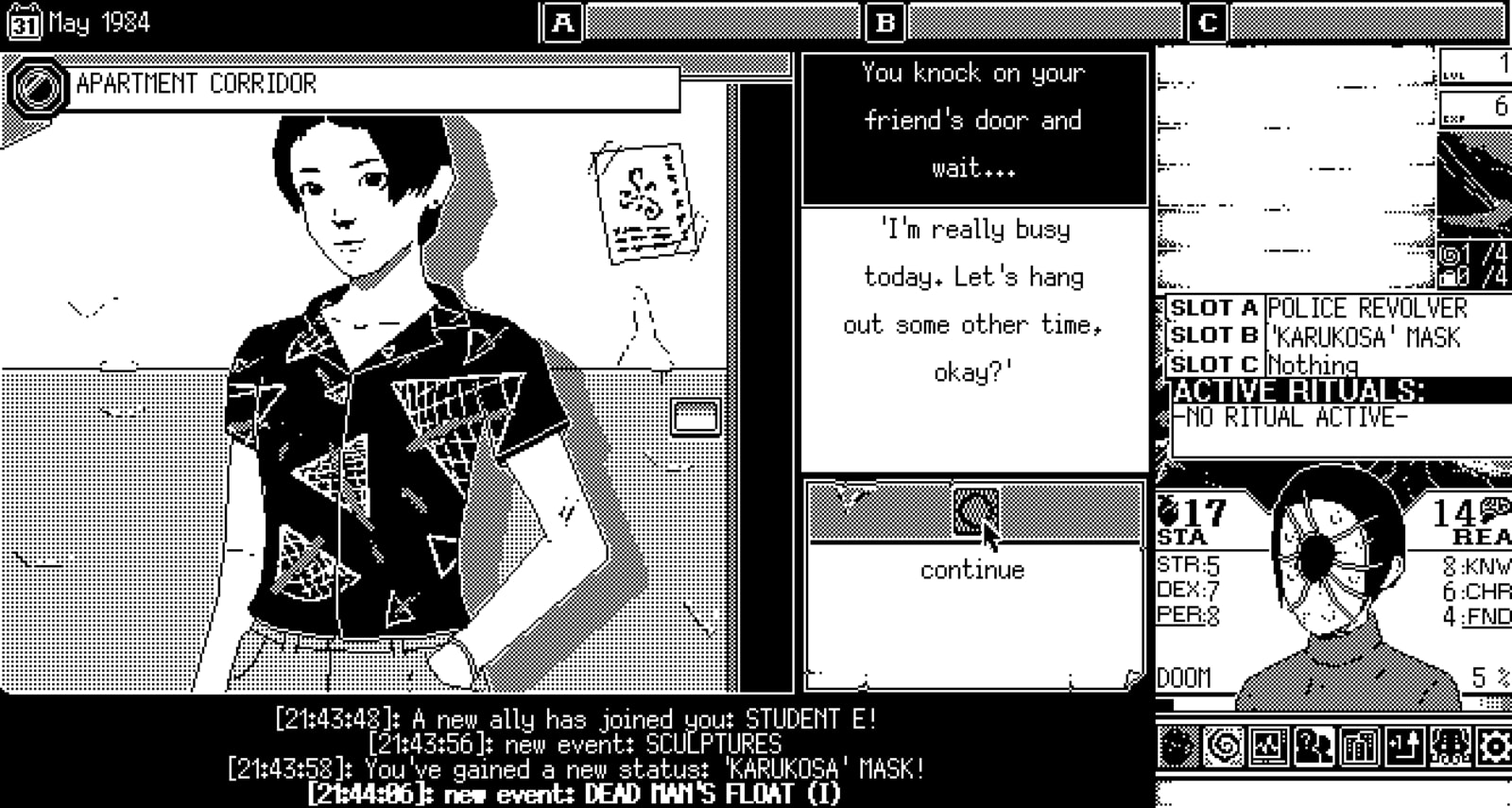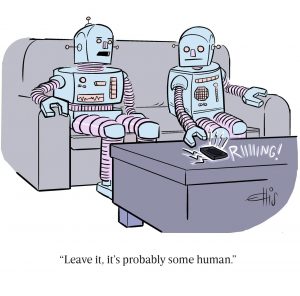World of Horror is borne of strange circumstances, which might explain why the game itself is so unsettling. It plays out in five short stories set in a seaside village in 1980s Japan, whose residents are falling into mass madness while eldritch monsters rise from the seas. Eerie chiptune music plays throughout the game, frantic and propelling. People have gone missing, festering demons are walking the streets, and sushi chefs are serving omakase with human eyeballs on the platter. Fight scenes are turn-based, forcing you to stare down your fears and face slaughter one move at a time. It’s your job to investigate, stay sane and complete all five segments before the world is consumed by this otherworldly horror — or before the twitchy scissor demon stabs you to death. Whichever comes first.
This rich world of terror is presented in 1-bit black-and-white scenes, as if a HyperCard application had a wriggling, six-legged baby with horror-manga legend Junji Ito’s complete anthology. Most developers create their games using tailor-made animation programs and game engine software, but Kozminski is doing all of his work in Paint, specifically because it’s a crappier program.
“Creating art in Paint is actually really inspiring and somehow relaxing,” Kozminski said. “The limits of the program really force you to get creative with it, which is a huge thing. I guess 1-bit black-and-white art is the closest I can get to simulate that comic book feel, too.”
Kozminski discovered Ito through one of his most celebrated works, the short story The Enigma of Amigara Fault. Kozminski randomly stumbled across a scanlation (a fan-uploaded manga scan) of The Enigma of Amigara Fault years ago, and the final panel was seared into his memory, featuring a grotesque, formerly-human creature emerging from thin cracks in a mountain, groaning, “DRR… DRR… DRR.”
Kozminski’s obsession with horror has more classical roots, as well. Back in 2004, when he was a teenager, he read Top Ten Horror Stories by Michael Cox, an anthology of age-appropriate versions of classic tales like The Pit and the Pendulum, The Hound of Baskervilles and Frankenstein. This was how he discovered HP Lovecraft, another clear influence on World of Horror, which sees the hideous rise of the Old Gods.
There’s another, more modern, approach to scary storytelling happening in World of Horror. The movie Jaws is praised for the way it builds tension, not showing the shark until the very end, allowing the audience to internalize the monster and imagine how terrifying it must look on an individual basis. Kozminski is deploying this tactic as well, hiding unspecified bits of horror in the low resolution of Paint.
“You see just enough details to see what’s going on in the scene, but you have to fill in the blanks yourself,” Kozminski said. “I think that everybody sees what scares them the most and that’s partly the reason people are pulled in to the game.”
World of Horror is due to hit PlayStation 4, Switch and Steam some time this year. It’s a passion project for Kozminski, something he works on by himself when he’s not drilling teeth. And that might be the most frightening part of this entire saga — not the fact that someone dreamed up World of Horror and its landscape of insanity, depravity, and bloated, bloody beasts, but the fact that a dentist did, potentially while in the middle of a routine cleaning or a root canal. It brings an entirely new sentiment to that sound Kozminski loves so much: “DRR… DRR… DRR….“




